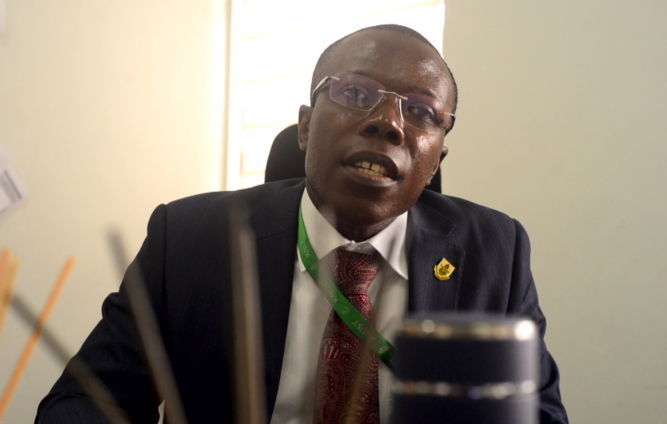
Audio By Carbonatix
Mastercard Higher Education Health Collaborative of the Kwame Nkrumah University of Science and Technology will soon roll out new courses to address gaps in Ghana’s health sector.
The Principal investigator on the project, Prof. Ellis Owusu-Dabo says the courses will span from data science to management of non-communicable diseases to aid middle-level health manpower towards the attainment of universal health coverage.
He was speaking at a policy stakeholders' engagement in Kumasi.
Prof. Owusu-Dabo said the knowledge gap in the health sector has resulted in inefficiencies in the delivery of primary healthcare.
“These gaps have been identified and stakeholders are going to create employment through certifications of new programmes at KNUST and also to ensure certificate courses are run to give the middle-level power to those implementing the ideals of healthcare concepts in various jurisdictions,” he stated.
The objectives of the Higher Education Collaborative in Health are to: Build and strengthen capacity of healthcare students and professionals to meet growing demand for Primary Health Care (PHC) in the health sector; Enable students to acquire advanced skills in Africa across a broad range of disciplines critical for sustainable health sector growth and transformation; Optimize entrepreneurial ecosystems in and through universities in Africa to launch and scale health start-ups to create jobs; Develop a dynamic, sustainable, long-term network of leading African universities, alumni, government agencies, health care start-ups, and private sector partners working together to create dignified and fulfilling jobs across health ecosystems.
The project will further develop a dynamic, sustainable, long-term network of leading African universities, alumni and government agencies, health care start-ups, and private sector partners working together to create dignified and fulfilling jobs across health ecosystems in the next ten years.
KNUST is one of the eight partners of the Higher Education Collaborative in Health with the aim to contribute to all three pillars of the health strategy: Health Employment, Health Entrepreneurship, and Health Ecosystems.
Pillar Coordinator, Health Entrepreneurship, Prof. Wilberforce Owusu-Ansah stressed the need to create entrepreneurial opportunities in the health sector.
“Some people look at entrepreneurship from business start-ups, but we want to look at from setting up your own business and being entrepreneurial wherever you find yourself,” he said.
Latest Stories
-
Kpasec 2003 Year Group hosts garden party to rekindle bonds and inspire legacy giving
1 hour -
Financing barriers slowing microgrid expansion in Ghana -Energy Minister
1 hour -
Ghana’s Ambassador to Italy Mona Quartey presents Letters of Credence to Pres. Mattarella
2 hours -
KOSA 2003 Year Group unveils GH¢10m classroom project at fundraising event
2 hours -
Woman found dead at Dzodze
4 hours -
Bridging Blight and Opportunity: Mark Tettey Ayumu’s role in Baltimore’s vacant property revival and workforce innovation
4 hours -
Court blocks Blue Gold move as investors fight alleged plot to strip shareholder rights
4 hours -
Nana Aba Anamoah rates Mahama’s performance
4 hours -
Ghana selects Bryant University as World Cup base camp
5 hours -
Nana Aba Anamoah names Doreen Andoh and Kwasi Twum as her dream interviewees
5 hours -
Religious Affairs Minister urges Christians to embrace charity and humility as Lent begins
7 hours -
Religious Affairs Minister calls for unity as Ramadan begins
7 hours -
Willie Colón, trombonist who pioneered salsa music, dies aged 75
7 hours -
Ga Mantse discharged from UGMC following Oti Region accident
8 hours -
Guardiola tells team to chill with cocktails as Man City pile pressure on Arsenal
8 hours

